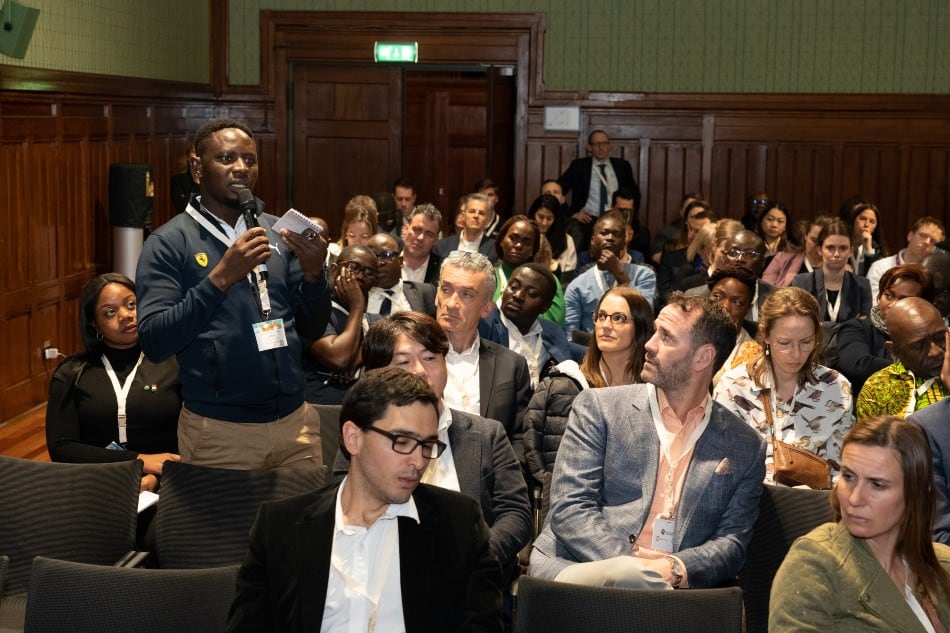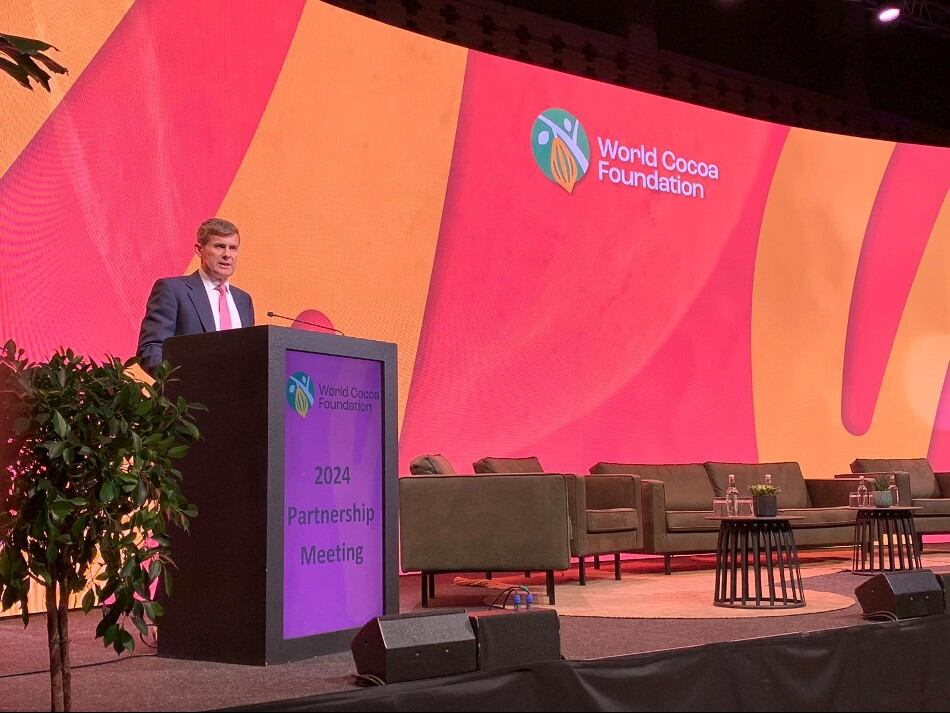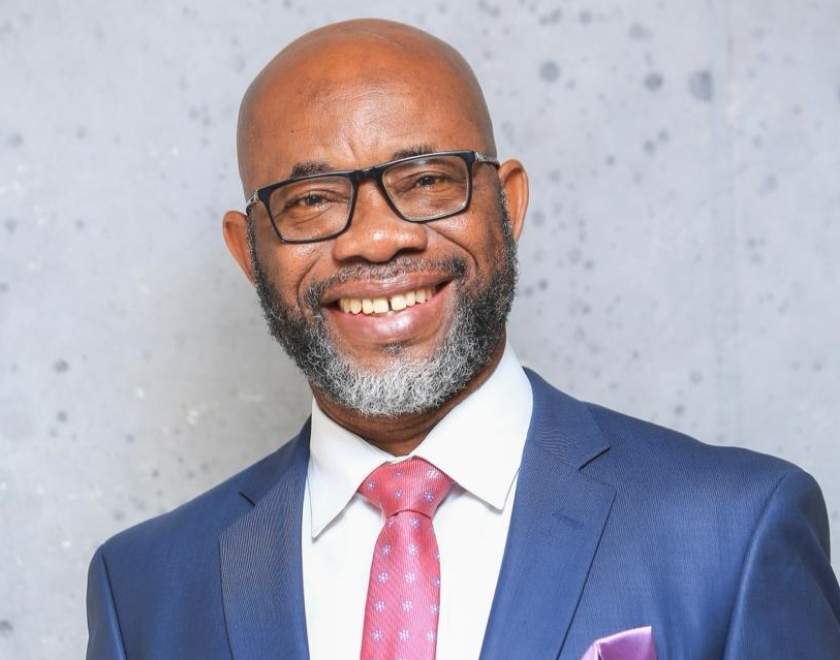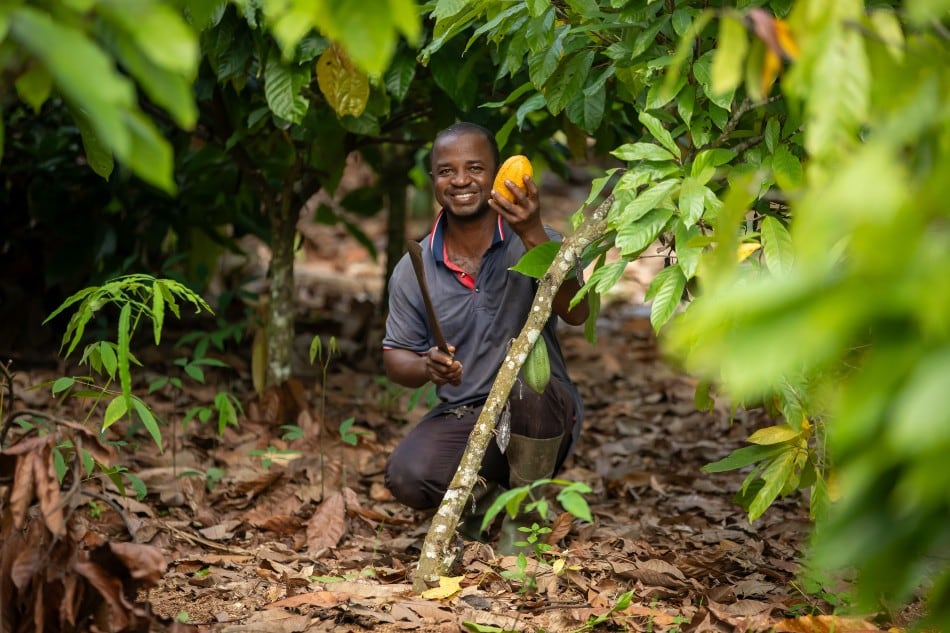In a specially convened breakout session at the Beurs van Berlage, The Known Unknowns of the EUDR, delegates were reminded that the European Union Deforestation Regulation is one of the shortest introductions of EU legislation ever. As the cocoa sector is venturing into unexplored territory, many ‘unknowns’ remain.
Zoe Druilhe, Policy Officer, EU Commission, found herself in the hot seat, fending off concerns from members that there has not been time to implement all the due diligence requirements. Druiilhe said that, nevertheless, there was no ‘plan b’ despite the most significant unknown being the impact of the new rules on farmers.
Team Europe
But she reassured the meeting that guidance was forthcoming and that there would be a Team Europe initiative launch on a deforestation-free value chain, which would be the central pillar for supporting partnerships and origin countries. She said the EUDR was an extension of the EU’s Sustainable Cocoa Initiative. “We really believe that with a better product that's going to be environmentally sustainable without deforestation, we can hopefully get a better price for farmers.
“So it's linking these two dimensions that make this initiative original, which I think can also help reach our objectives in implementing the EUDR and making it successful.”
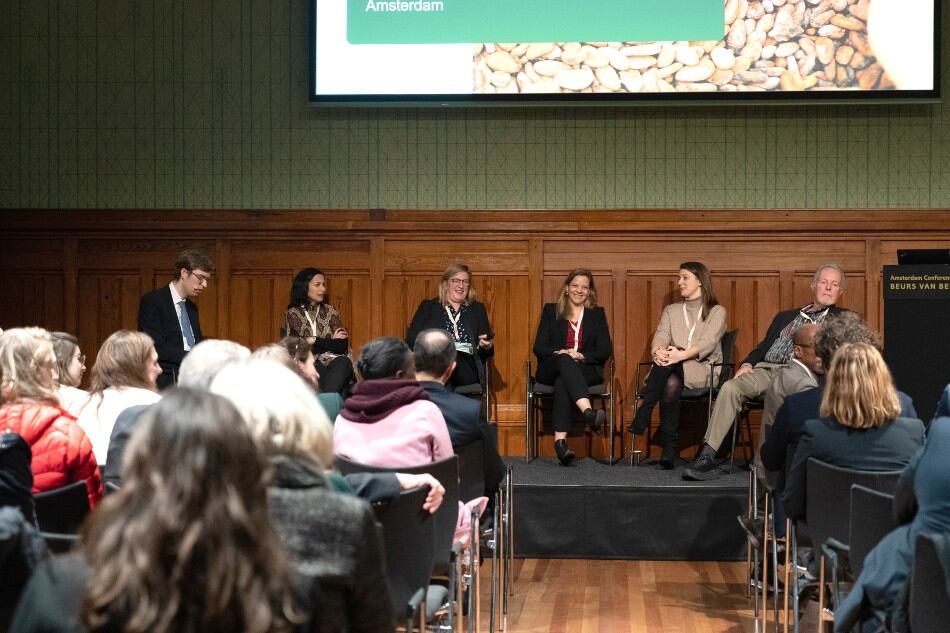
She said that dialogue with stakeholders is ongoing, and a guidance document is set to be published in early 2024. She promised EU technical assistance with help strengthening or deploying the traceability systems to monitor forests and increase cocoa production. “We are working on standards, working on sustainable practices, working with farmers organisations, where we can because, of course, as development partners, we're not covering entire countries - it is not possible, nor wishable.”
Sustainable Cocoa Initiative
The Sustainable Cocoa Initiative addresses the environmental pillar of sustainability and pre-exists the EUDR, Druilhe said, “and in that sense, we are accompanying the EUDR implementation. But our objectives are threefold. There is the social pillar, the environmental pillar, and the economic pillar of sustainability.
Ruchira Joshi, Global Director, ESG, IDH, said this is only the “tip of the iceberg.” There are still many unknowns on the implementation side of things – and several more technical questions on the impact side of things. “In the end, you have to keep your eye on the ball of what the regulation was intended to achieve, which is better livelihoods for smallholders and avoid deforestation.”
But she said the most significant question remains unknown: how effectively and efficiently will it be to ensure the inclusion of smallholder farmers in due diligence systems. “These international collaborations need to be translated into on-the-ground actions, collective actions, and collaboration. For example, sharing data on traceability and forest cover, investing collectively in forest protection, teaming up in agroforestry support.”
She said she welcomed WCF president Chris Vincent’s opening comments around the acceleration and doubling down on landscape approaches to strategically address the requirements of legislation such as the EUDR in the long term. “This can be a real step forward if done meaningfully and collaboratively in tackling that unknown.”
She made the point that while EUDR is rightfully putting pressure on companies to act, their actions cannot be successful in isolation from the actions of everybody else involved, including the public sector and producers. “So basically, all those stakeholders have a role to play.”
Audrey Lagauche, Cocoa Sustainability Director, Touton, said her company is preparing for the new legislation on two levels. “The first one is internal progression, adding resources, investing in tools, changing processes, our way of working, and most of all, building the capacities of the farmer groups and the farmers in different producing countries so that they're up to speed with us to be ready for policy legislation.
“The second level is getting ready as a sector and aligning as much as possible. We know that there are technical and operational challenges. But also, the legislation gives a level playing field for aligning and an opportunity to align.
“And that's why we are actively involved in the European Cocoa Association working groups on articles 910 and 11 protocols. So that we can agree on common processes and practices as much as possible while not forgetting the end goal.”
Impact on farmers
Kerry Daroci, Cocoa Lead, Rainforest Alliance, agreed that the biggest unknown of the EUDR is the impact on farmers.
“The Rainforest Alliance has been very supportive of EUDR. It aligns very well with our mission to end deforestation from the beginning. We don't necessarily see it as a move away from certification, but rather, we see certification as a tool to support companies in meeting some of their obligations under EUDR.
“You can see that the regulation itself says certification is not a green light for EUDR. However, it is a way to collect and use that data to meet your obligations as a company under EUDR. And while there are some unknowns and other things that need further exploration within EUDR, we do see that the Rainforest Alliance certification programme aligns very well with EUDR.
“The fact that RA already has options for full traceability from farm certificate holders to the retail shelf. The fact that there is a deforestation risk assessment built into certification, so every cocoa farmer that goes through the certification process also goes through a deforestation risk assessment process.
“And that legality is the baseline for certification. We've created an option for farmers for self-selected criteria that farmers can opt into to better support their supply chains in meeting their EUDR obligations, like requiring a polygon of their plot, for example. This is free of charge and built into RA certification.”
Another unknown fact at this stage regarding the EUDR is whether smaller countries get ultimately squeezed in the middle, delegates were told. It is essential to find out what is working well and what can be learned for the more prominent players and replicate it with the smaller ones as soon as possible.
“How can we avoid some of those missed opportunities to save forests and call for greater transparency and collaboration across the board? Stakeholder groups have a responsibility to help it meet the requirements of the regulation, regardless of size, said one audience member.
Liberia
Andrew Gilboy, CEO and co-founder of Liberia Biologic Cocoa & Agriculture, said Liberia differs from the other countries in the conversation about EUDR. “First of all, it's a minuscule producer of cocoa, but while the EU is putting pressure on operators to comply with the regulations, what about countries dealing with other issues such as a lack of infrastructure, no electricity, or mobile coverage in some areas?”
He called for decision-makers to use the EUDR to promote good sustainability practices for non-exporting countries to the EU.
While due diligence processes will be mandatory, another unknown was the legality of imposing regulations on small-holder farmers where land rights and farm ownership are an issue. Druilhe said that no matter what, it was the responsibility of the grower to comply, no matter who owned the land.
There was also a concern that farmers in South America lack information on the guidelines – and all the while, the clock is ticking, with only a little over 46 weeks at the time of writing until the legislation comes into force.

